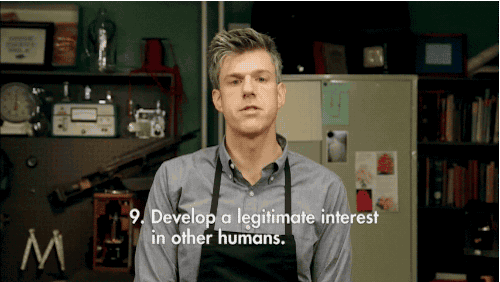I watched Carrie for the first time this October.
I was alone. And I was ready to be scared.
I was not scared. If anything I was creeped out. Not by the film itself but because it's exaggeration of the violence that women face reminded me of the reality of how difficult it is to be a woman sometimes. And how strange and difficult and lonely it is to be who you are in a world where you have no (real) support and your peers are vastly more privileged and comfortable than you.
A lot of people will think upon viewing Carrie will find a sympathetic character in the gym teacher, Miss Collins, but I don't think she is a actually friend to Carrie. In fact I find her to be a faux-ally. She doesn't reach out to Carrie out of compassion. She reaches out to her to encourage and enforce the her own roll as benevolent teacher and the role of Carrie as a blossoming adolescent. Miss Collins needs Carrie to be successful socially because she see herself as being validated by doing so. She approaches carrie in a passive aggressively predatory manner, trying to make her better fit into her social group, and make her into the "girl" that she is nostalgic for. She is attracted to the an idealized version of Carrie and is not actually interested in the person that Carrie is.
In the beginning of the film when speaking to the principle about slapping Carrie in the shower Miss Collins says "In that moment I knew why those girls wear doing what they did and I just wanted to smack her."
Despite her friendly approach she is still trying to force Carrie into a role. In the infamous pigs blood scene Carrie recognizes Miss Collin's falseness and "sees" her gym teacher laughing along with everyone else. Like all of the women in this film Miss Collins feels the need to discipline ridicule or change Carrie because of her failure to live up to what she considers normal and acceptable for the role of woman.
To an excruciating and delightfully acted degree Carrie's mother projects the expectation of innocence and virginity onto Carrie. The girls at school project the expectation of teenage normality onto her. The gym teacher is complicit in this although she works her butt off to make Carrie's mandatory assimilation into her version of womanhood as comfortable and humane as possible. Kind but ultimately misguided.
Carrie is a whipping girl, a repository for every other female characters expectations of womanhood. The array of the projections she suffers are often delivered violently. In the literary sense I'd argue, that the heightened adversity she suffers from these projections is the violent crucible from which her powers to arise (much like a superhero is often motivated by tragedy/abuse).
For this reason I view Carrie as a parable about the horrific consequences of women willy-nilly projecting their impossible expectations onto other women. I love this film specifically for it's unique focus on relationships between women. Yes it is violent but the relationships between woman often are (one of the ways the patriarchy maintains itself is by pitting women against each other). And some of my all time favorite movies demonstrate this (Mean Girls).
Call it misandry if you must, but I also find it very funny that all of the men in this movie are inconsequential. Their characters basically only exist to serve the aims of the female characters seeking to undermine Carrie. It's a deliciously strange reversal of how
genders are usually represented in film. The women and their twisted motivations drive this film.
Carrie is often billed as a revenge flick and honestly I think that's an oversimplification. Carrie doesn't burn down the school, flip the car, and bring her house down because she wants to get revenge on all of people who have violently projected their crap onto her. She does it because the world as she knows it is a terrible horrible place where if you don't live up to people's expectations you get ridiculed and abused.
She burns the world to the ground because she's had first hand experience after experience of just how fucked the world is. She isn't in it for revenge, this move is a murder suicide story.
In this sense it's telling that Sue, the only survivor of Carrie's rampage, never spoke directly to Carrie and felt actual remorse about the shower incident. Sue made no attempt to change or solicit anything from Carrie at all. The only person in the film who gave Carrie anything without expecting her to fill their ideal role of womanhood was the person allowed to survive. Although she is left haunted by what she witnessed, as are all of us who live in a world were women are pitted against one another for not living up to skewed and violently enforced ideals of womanhood.






